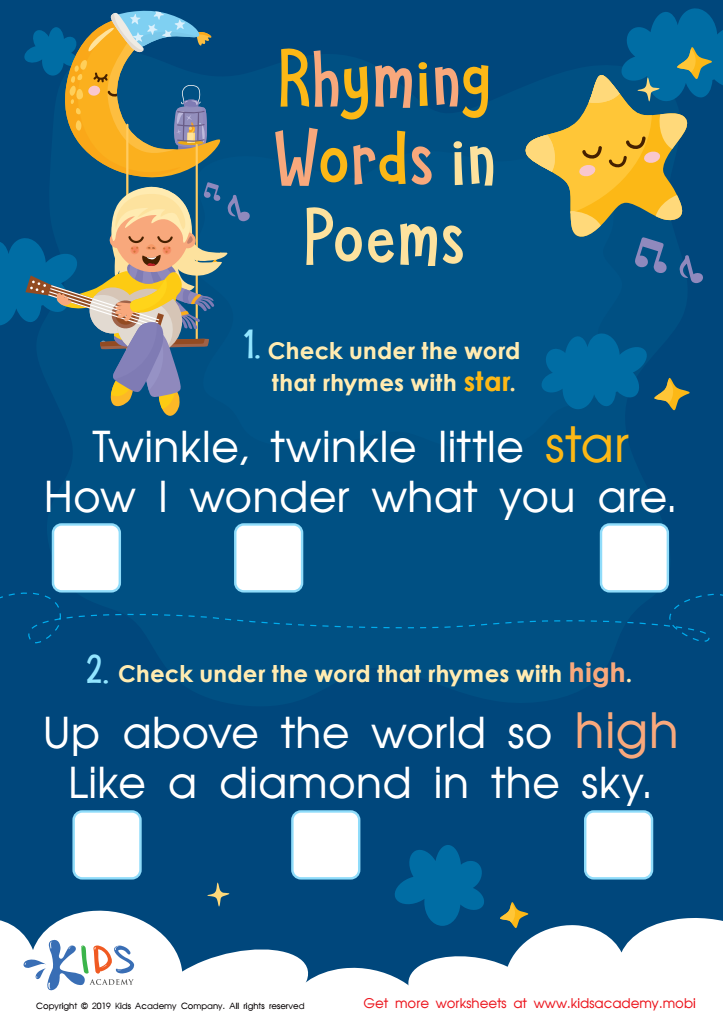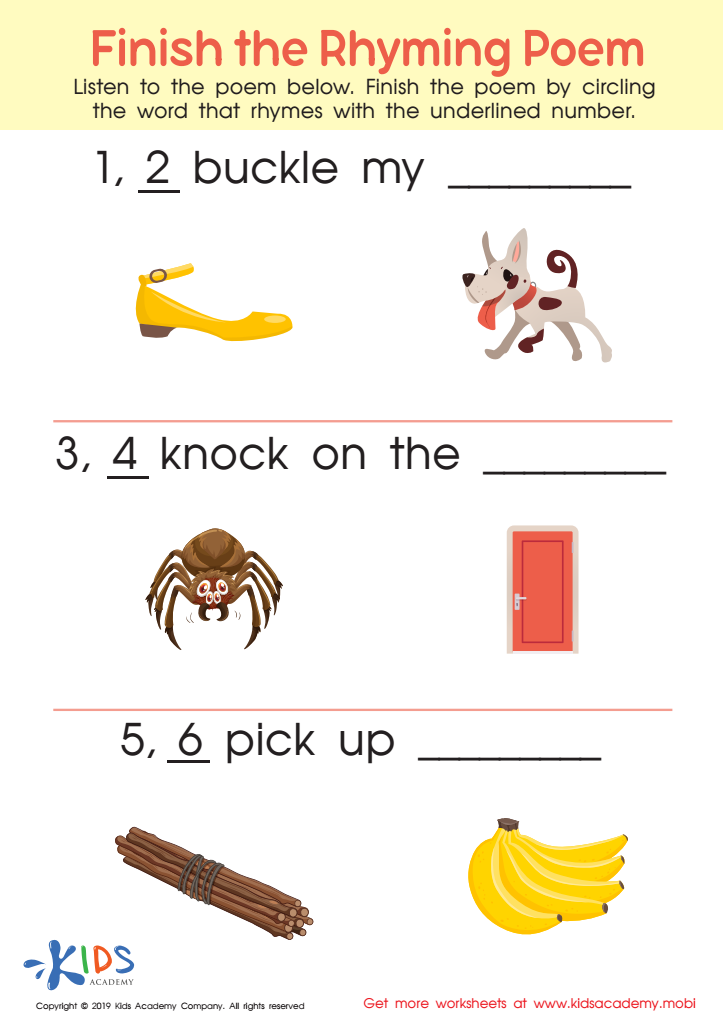Vocabulary enhancement Normal Rhyming Words Worksheets for Ages 3-4
5 filtered results
-
From - To
Boost your child's vocabulary with our engaging Rhyming Words Worksheets tailored for ages 3-4! These worksheets are designed to make learning fun while developing essential language skills. Through interactive exercises, children will explore normal rhyming words, enhance their pronunciation, and increase their word recognition. Our visually appealing and age-appropriate materials encourage creativity and collaboration, helping young learners appreciate the rhythm and sound of language. Perfect for parents and educators, these worksheets are an excellent resource for supporting early literacy and vocabulary enhancement in a playful manner. Start your child's journey to language mastery today!


Rhyming Words Rhyming Worksheet


First Words: Picture Rhymes Worksheet


Rhyming Words in Poems Worksheet


Finish Rhyming Poem Worksheet
Vocabulary enhancement through normal rhyming words is crucial for children aged 3-4 for several reasons. At this age, children are developing foundational language skills, and engaging with rhymes promotes phonemic awareness—one's ability to hear, identify, and manipulate sounds in words. This skill is vital for later reading success.
Rhyming also enriches vocabulary by introducing new words in a playful and memorable context. Children are more likely to remember words they hear within catchy nursery rhymes or songs, helping them to integrate these words into their own speech. Moreover, the rhythmic patterns of rhymes can enhance a child's listening skills and attention span, facilitating better communication.
Furthermore, learning through rhymes encourages imagination and creativity. As children recite or listen to rhymes, they learn to associate meanings with words and understand their usage in sentences. This develops their cognitive abilities, allowing them to categorize words and understand language nuances.
Ultimately, incorporating rhyming words into daily interactions by parents and teachers fosters a fun, engaging atmosphere that encourages young learners to explore language, enhancing their overall literacy skills and setting the foundation for academic success.
 Assign to My Students
Assign to My Students
















